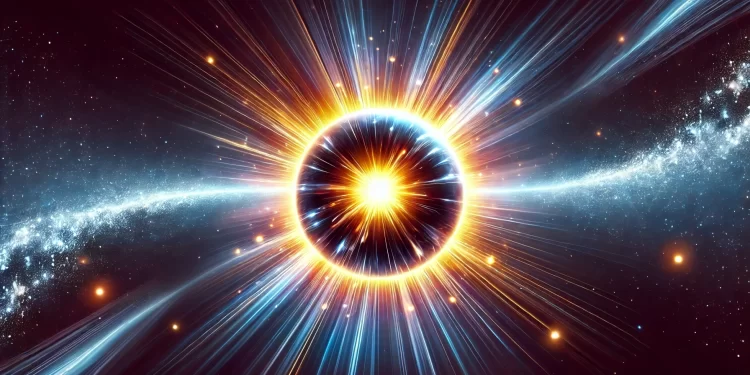The universe’s constant expansion is a cornerstone of modern cosmology, yet it raises a mind-bending question: What is it expanding into? If the universe is infinite, this seems paradoxical. However, the answer lies in rethinking space, time, and the very fabric of reality.
Imagine a balloon being inflated. As the surface stretches, every point moves farther apart. Now, picture that surface as the entire universe—not the air inside or outside, just the two-dimensional surface. In this analogy, the “inside” or “outside” doesn’t exist in any physical sense. Instead, the universe expands within itself, stretching the space-time fabric without needing an external “container.”
This concept is challenging to grasp because our daily experiences are bound by limits and edges. However, the universe doesn’t conform to such constraints. Everything that exists—space, time, matter, and energy—is part of the universe, leaving no “outside” to expand into.
The Big Bang and the Expansion’s Origins
The universe is believed to have begun 13.8 billion years ago with the Big Bang, an event that marked the rapid expansion of an incredibly dense, hot state. While the term “Big Bang” might evoke images of an explosion, it wasn’t a burst into empty space but an expansion of space itself. This rapid inflation created the foundation for the cosmos as we know it.
Soon after, the universe cooled and began forming matter and light. Over billions of years, it evolved into the intricate cosmic web of galaxies, stars, and planets. In the 1920s, physicist Alexander Friedman mathematically demonstrated that the universe could be expanding. A few years later, astronomer Edwin Hubble confirmed it by observing galaxies moving away from each other. Hubble’s work revealed not only that the universe is expanding but that this expansion is accelerating.
This accelerating expansion baffles scientists. Gravity, the force that pulls objects together, should slow the process. Yet something counteracts gravity, causing galaxies to move apart faster over time. This mysterious force is called dark energy.
Although scientists cannot directly detect or measure dark energy, its effects are evident. Models suggest it comprises 68% of the universe’s total energy, dwarfing the 5% made up of visible matter like stars and planets. Understanding dark energy remains one of the greatest challenges in physics.
Beyond the Observable Universe—Could There Be More?
The observable universe has limits set by the speed of light and the age of the cosmos. Beyond this horizon lies the unknown. Some scientists propose the existence of multiverses—other universes with different physical laws or dimensions. While purely theoretical, these ideas could address unresolved questions, such as the reconciliation of quantum mechanics and gravity.
Quantum mechanics governs the subatomic world, where particles behave unpredictably and energy exists in discrete packets. Gravity, on the other hand, dominates large-scale structures, behaving smoothly and continuously. Combining these two frameworks into a single, unified theory remains elusive. Exploring multiverses might provide insights into these fundamental questions.
What lies beyond our universe? Science has yet to find definitive answers, but the pursuit of understanding drives innovation and discovery. Each breakthrough reveals deeper mysteries, reminding us of the vast, uncharted territory that remains.











